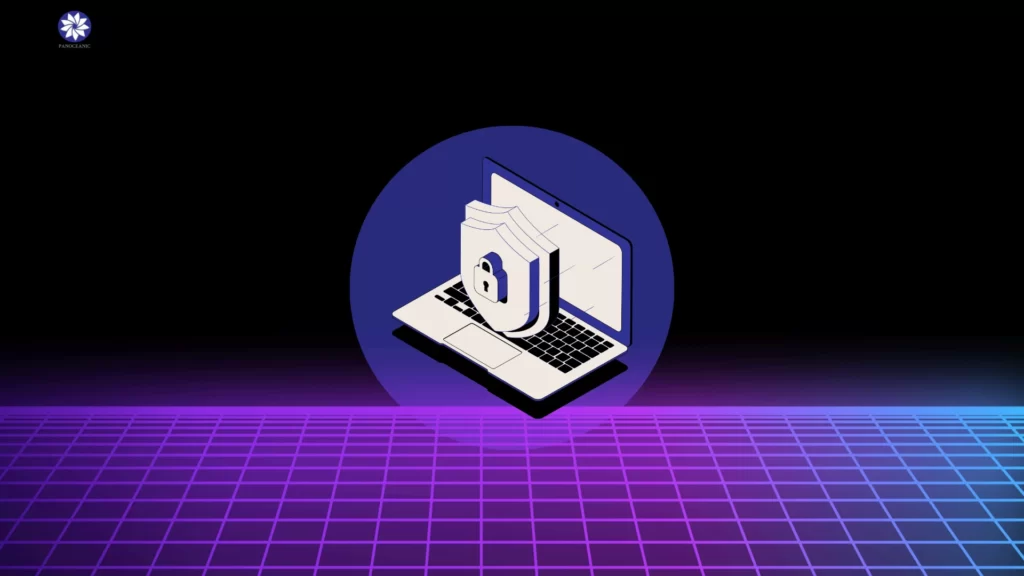Chat AI Security Tips to Protect Your Sensitive Business Data
Table of Contents

Chat AI programs, like ChatGPT or Bing AI, are probably the fastest-growing prosumer (professional consumer) services in the world today. Users increase by their hundreds of thousands each day and tech companies are scrambling to develop and launch new AI chat bots.
You’re keen to test out this new technology for yourself, to see how it can save your business time and money.
But are chat AI programs safe when it comes to your confidential business data?
According to data security organisation, Cyberhaven, 11% of the data employees enter into ChatGPT is confidential. And this number is growing. From 26 February to 9 April 2023, the incidents involving sensitive data (internal information, source code, client records etc) entered into ChatGPT rose by 60%.

Chat AI, while set to change the way we work forever, open the door to intrusive data gathering.
But there are things you can do to keep your sensitive information and IP safe while still enjoying the benefits AI chat programs offer.
How Chat AI Programs Introduce Security Vulnerabilities
Every second of every day, chatbots gather huge amounts of data – data that could be leaked or fall into the wrong hands.
The large language models (LLMs) that power chatbots currently do not expose chatbot query information to other users. But this query data is stored and is visible to chatbot provider employees.
Data scientists will doubtless need to analyse query information to improve the AI. But organisations can also use your data for retraining their LLMs or even for targeted advertising.
The risks
If chatbot query data is hacked, leaked or incorporated into a retrained LLM, cybercriminals will have access to unlimited sensitive information. Cyber-attacks will become far more sophisticated and effective.
If AI collects voice, image, device and IP address information, along with query text, identity theft could become far more prevalent.
Should your confidential business information get hacked or simply become public, there are repercussions for every area of your business – including client relationships, legal issues, stock prices and public confidence in your brand.
What are chatbot providers doing about privacy and security?
The organisations who developed AI chat programs claim they only collect your data so they can improve their services. And surely, providers of the best AI chat bots need to value your privacy if they value your business.
OpenAI
The developers of ChatGPT have a privacy policy that aims to protect data and not share it with third parties. ChatGPT has also been trained to refuse to answer inappropriate questions.

OpenAI’s FAQs state they can’t delete specific prompts from your user history and recommend you don’t enter sensitive information into ChatGPT.
ChatGPT uses query data to retrain its LLM, but users have an option to turn off chat history, so their data won’t be used for retraining and improvement purposes. You can also delete your data by deleting your account.
Microsoft
Some Microsoft employees can view chat conversations, which is stated in their latest privacy policy. However, encryption technology is used, along with procedures for data retention periods. Users will also have access to a privacy dashboard.
Microsoft does not recommend entering confidential information into their chatbot products, Bing AI and Copilot.
Want to know more about Microsoft Copilot? Explore our content: How Microsoft 365 Copilot Will Kickstart the Future of Work.
Google has said it won’t share information entered into its chatbot, Bard. But the company’s overall privacy policy allows for the use of data as input for targeted advertising.
Ways to Protect Your Data While Using Chat AI
Chatbot technology is new and untested. It’s impossible to know if it’s private and secure. But there are things you can do to protect your confidential business and client information.

- Use a VPN to mask your IP address from chatbot programs. This will help hide your online identity from the AI and anyone viewing your query data.
- Update your security and data loss prevention (DLP) policies to include AI chatbots. Inform your staff, preferably in the form of security training. It helps to remind staff regularly that they should never share confidential or sensitive information, including entering it into a chatbot prompt.
- Give your staff clear and unambiguous guidelines about what information they can and can’t enter into chatbot prompts, especially when it comes to copying and pasting text. Text can’t be detected and blocked by security tools and confidential data has no recognisable pattern to identify it’s confidential.
- Exercise the same caution and vigilance with chatbots that you use when it comes to phishing email and other online scams.
- Adhere to data protection and privacy regulations and legislation. Ensure your staff are aware of them too.
- Confirm third-party chatbots and other add-ons incorporated into applications you use, like Microsoft Teams and Slack, are as private and secure as Teams and Slack.
- Implement policies on your secure web gateway (SWG) to detect when AI tools are being used.
- Limit the input size of chatbot queries. This helps prevent employees from pasting large amounts of confidential information such as company reports or source code into a query prompt.
- For larger organisations, a private chatbot program implemented on a cloud provider or self-hosted could be an option.
- Block chatbot programs. Many organisations, such as Amazon, JP Morgan and Verizon, have blocked ChatGPT from their workplaces. The Italian Data Protection Authority temporarily banned the application over privacy concerns. OpenAI disabled ChatGPT in Italy until April 30 2023 when they enhanced privacy and transparency about how data is used.
However, you also need to consider the efficiency benefits chatbot technology can offer your business. Explore our content: 3 Amazing Things Microsoft’s New Bing and Edge Can Do.
FAQs
How can I safely enter sensitive information into AI chat prompts?
There is no guarantee sensitive information is safe after you enter it into AI chat prompts. We recommend not using sensitive information when querying a public AI chat program.
How can I protect company information when using chatbot programs?
We recommend you do not include sensitive information when querying a public AI chat program. Update your security policies and procedures to enforce this across your organisation. Explore our content: Ways to Protect Your Data While Using Chat AI.
Is my query data visible to other users of chatbot programs?
Not at the moment. However, your query data is visible to chatbot providers’ employees and could be used when they retrain the large language models (LLMs) that power chatbots.
What does chat AI do?
Chat AI understands and answers user questions in natural (human) language. It interprets and analyses your request, then answers your question, which can be refined through further chat with the AI.
Conclusion
Chat AI can be an extremely useful tool for creating and analysing content across your organisation. It could skyrocket your business’s productivity and employee engagement.
Just ensure you implement the right strategy when it comes to safeguarding your confidential information.
I believe as these tools continue to develop, the playing field between small, medium and large businesses will even out. AI chatbots are already revolutionising the way we work, and I see a future where a business that leverages this technology will outperform its rivals.
Unsure where to start when it comes to AI and security?
Connect with Panoceanic today to find out how we can help keep your business data secure as you transition into a modern workplace.
Want regular exclusive updates and content from Panoceanic?
Get in Touch
Let’s talk about how technology can transform your business
